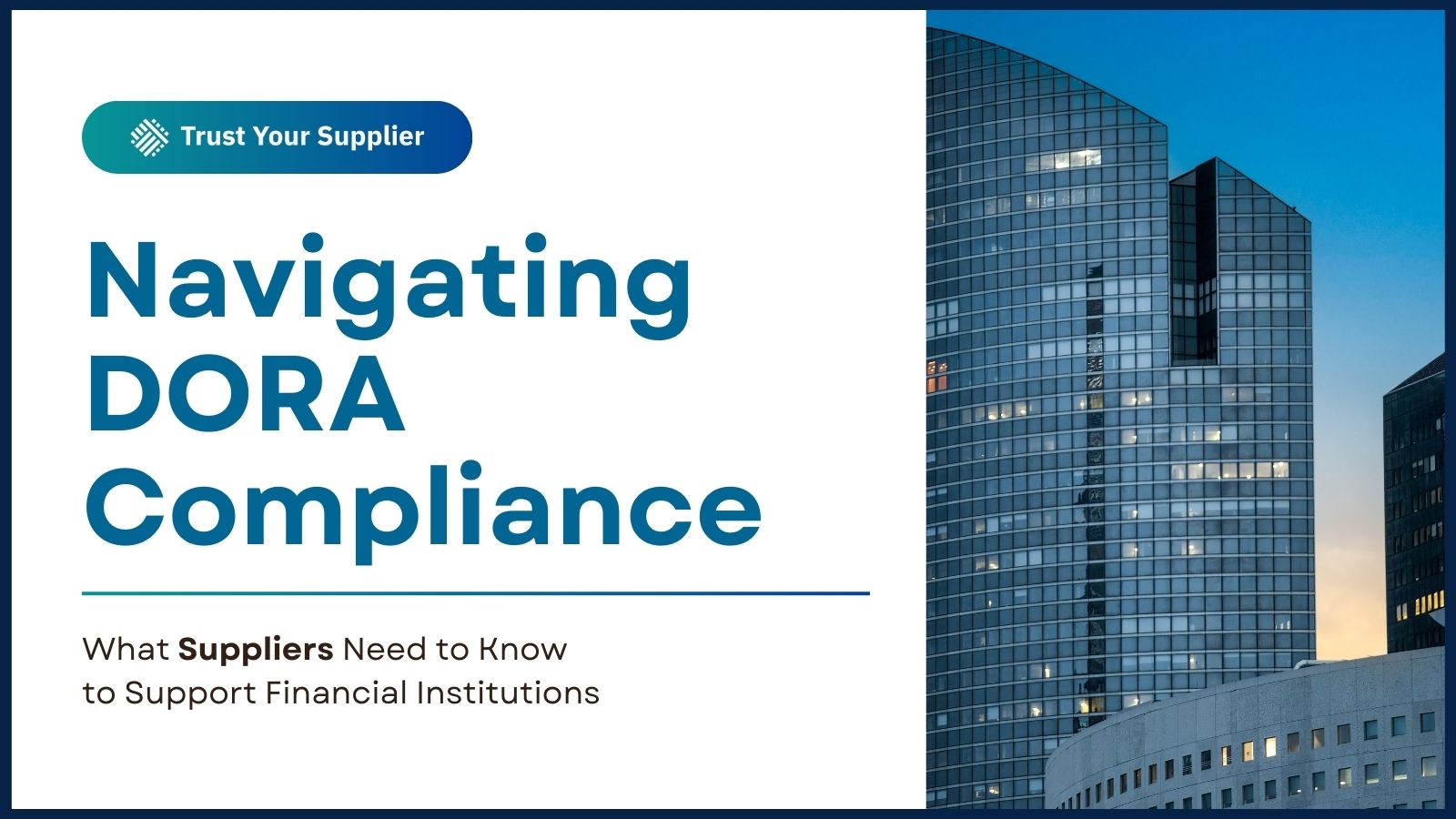“In the financial services arena, compliance isn’t just a mandate or a regulation – it is a commitment to trust and resilience.” ~Sri Gopinath, TYS VP of Customer Success, Delivery & Professional Services
The European Union’s Digital Operational Resilience Act (DORA) is now in effect, bringing a significant shift in how financial institutions manage risk and compliance. But DORA isn’t just about internal operations—it extends to suppliers and third-party service providers. For suppliers, understanding and aligning with DORA is essential for maintaining trust and building successful partnerships with financial institutions.
Financial entities, including banks, investment firms, and insurance providers, are required under DORA to ensure operational resilience across their supply chains. This means suppliers play a critical role in helping these institutions meet compliance obligations and minimize risks.
Why Suppliers Must Pay Attention to DORA
DORA requires financial institutions to take a closer look at the suppliers they depend on, especially those providing critical services such as IT infrastructure, cybersecurity, regulatory reporting, and data management. Suppliers who fail to meet the standards set by DORA may face challenges in securing or retaining contracts with financial entities.
Key areas of focus for suppliers include:
- Demonstrating Operational Resilience: Suppliers must show that they have robust systems, disaster recovery plans, and cybersecurity measures in place to mitigate risks.
- Meeting Compliance Requirements: Suppliers need to align with the operational resilience expectations of their financial clients, as specified in DORA.
- Maintaining Transparency: Continuous monitoring and open communication with financial clients about risk and compliance are essential.
How Suppliers Can Prepare for DORA
To align with DORA requirements and meet the expectations of procurement organizations, suppliers should:
- Assess Your Current Compliance Posture: Review your operational resilience strategies, cybersecurity policies, and disaster recovery plans to ensure they align with the expectations of financial institutions under DORA.
- Cybersecurity Policy
- Disaster Recovery Plans
- Sustainability Plans
- Strengthen Your Internal Processes: Implement systems for regular audits, risk assessments, and compliance tracking. Demonstrating that these processes are in place will build confidence with financial clients.
- Be Ready for Continuous Monitoring: Financial institutions will require ongoing oversight of supplier compliance. Ensure you have tools and protocols for providing necessary updates, audit responses, and risk assessments in real-time.
- Develop Clear Incident Response Plans: Outline protocols for quickly addressing disruptions or breaches. Financial institutions will expect suppliers to have actionable contingency plans to minimize downtime and operational impact.
- Leverage Technology: Digital platforms like Trust Your Supplier (TYS) can help suppliers manage and communicate their compliance efforts effectively.
What Procurement Organizations Will Look For
Procurement teams at financial institutions will assess suppliers based on:
- Criticality to Operations: Suppliers providing essential services will undergo stricter scrutiny.
- Compliance Transparency: Procurement teams will look for suppliers who can provide clear evidence of their compliance efforts, including regular updates and documentation.
- Proactive Risk Management: Suppliers with robust risk management processes, such as cybersecurity measures and disaster recovery protocols, will have a competitive advantage.
How Trust Your Supplier (TYS) Supports Suppliers
Trust Your Supplier (TYS) is here to help suppliers streamline compliance processes, improve visibility, and ensure readiness to meet client and regulatory expectations. Here’s how we support your success:
- Centralized Compliance Management: Keep your compliance documentation, certifications, and responses to regulatory questionnaires in one place, ensuring you’re always prepared to meet client expectations.
- Visibility to Financial Institutions: By maintaining an up-to-date TYS digital wallet, you provide financial clients with immediate access to the information they need to evaluate your compliance and resilience.
- Stronger Client Relationships: Demonstrate your commitment to compliance and transparency by actively managing your digital wallet. This not only supports client trust but also positions you as a reliable partner in navigating regulatory challenges.
By keeping your TYS digital wallet current, you stay ahead of evolving regulatory demands, building trust and enhancing your value to financial institutions.
Building Resilience for the Future
DORA presents an opportunity for suppliers to strengthen their compliance frameworks and position themselves as trusted partners for financial institutions. By aligning with DORA’s requirements, suppliers can enhance their operational resilience, improve transparency, and build long-term relationships with procurement teams.
As DORA compliance becomes a priority for financial institutions, it’s essential for suppliers to proactively manage their risk and compliance data. By keeping your Trust Your Supplier digital wallet up to date, you ensure that financial clients can see your commitment to operational resilience and regulatory adherence.


0 Comments